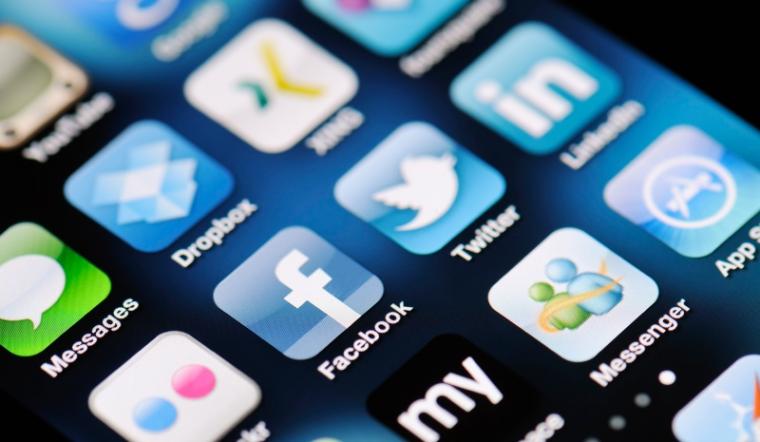

At some point, you’ve probably wondered whether a mobile app would be useful to your own sports event. After all, you probably have a social media presence, a website and an e-mail address. Isn’t an app the next logical step? And wouldn’t it be a great amenity?
Those are valid questions but the answers aren’t always as easy as we’d like. (And we, as mobile app designers, should know, after all.) Here some starting points in the form of Frequently Asked Questions (or FAQs) about apps and sports events.
What can an app do for my event?
A well-designed app can accomplish a number of purposes, all relating to answering questions and helping your event run more smoothly. Many of these functions pertain to services to athletes, spectators, families and visitors to the sports event. For example, a good app can help people accomplish the following:
Getting information on the event (when and where it’s taking place, etc.)
Purchasing tickets to the event
Providing information on getting into the event itself (for example, directions, parking, policies presenting tickets, items you can and can’t bring into the stadium and so on)
Helping gain the best possible experience for the event (for example, finding seats, ordering food and beverage, purchasing branded merchandise, etc.)
Create the best post-event follow-up (ordering apparel and other merchandise, learning about future events, buying tickets to those events and so on)
Athlete-specific apps (or aspects of an app pertaining to athletes) may contain information such as the race route for a marathon, notes about rest stops, a link to an evaluation of the event to be sent out later on, etc.
What are my choices?
When it comes to mobile apps, two basic options exist for development. One is to use a platform-based app. This is the less expensive of the two choices. Users can expect to put in about $5,000 to $10,000 to have an app created based on a platform. In this respect, a platform is a bit like a template; the bare bones exist, but it needs to be customized for the client.
Platforms can be used by an app design company, or users may want to try to make their own app by using software available on the market. Apps for Venues, a popular platform for facilities, is one example, and AppMakr is another.
A custom app is the next option, but be aware that it is relevant to larger, more complex events. Examples might be the U.S. Open or the Super Bowl – in other words, an event expected to draw thousands of attendees and to have multiple activities going on at various times. A custom app will cost no less than $100,000 and may well cost more.
If, like most readers, yours is a smaller event, a youth event or something rather manageable in terms of size, you’ll generally find platform-based apps more relevant to your needs. The advantage of a platform is that some of the work has already been done, meaning the app will require much less time to be developed than would a custom app. However, the drawback is it might visually resemble another app on the market, since the design is not exclusive.
I saw an ad for do-it-yourself apps. Is this a good option?
It is always a cost versus quality tradeoff. The do-it-yourself platforms can deliver a very basic presence at a very low cost, but will not be set up to allow you to do any custom marketing, which in many cases is the primary driver of value.
What specific options do venues have for designing apps?
Venues in essence have two options: they can roll their own custom apps to differentiate between various events, or they can use venue-focused platforms such as Venuenext or Yinzcam. Both are excellent options, but ultimately, the choice will depend upon budget (custom apps cost more) and timeline, as well as the level of complexity involved.
We are not here to plug our own services, but no matter whether you’re an event owner, a venue or anything else, consulting with a qualified app designer in advance can help address the questions on the front end, and give you a better sense of what is out there, and what your event (or venue) needs.
How much time does it take to design an app?
Apps, like many other facets of planning for sports events, take time. Designing, testing and marketing are all aspects of the process, and they cannot (and should not) be rushed. In other words, right before the event is not a good time to start looking into it.
Once the event owner has nailed down the information the app should contain, at least 60 to 90 days should be allowed for development – and it’s always better to build in more time, rather than less. In addition, the app has to go through the approval process (such as with Apple), so at least another few weeks will be needed. Because of all this, designers usually recommend people start the process at least a full six months before their event. Custom applications are still a three- to six-month endeavor (at least) and should be undertaken by those who want a truly differentiated experience because they believe they can drive real value through custom marketing programs.
That’s a lot of time and money, so how can I keep myself in the black?
Provided you’re starting far enough in advance, you may wish to have development of the app sponsored by a company that is seeking visibility. The logo of the sponsoring company could be displayed at the bottom of the app when it is opened. (After all, having advertising on signs and tee-shirts is great, but people do enjoy sponsoring something they think will be viewed as an amenity by those in attendance.)
While it’s tempting to think you will recoup the design costs by using an app people have to pay to download, it’s never a good idea – and we can state that from experience. At least 50 percent of the people using the Internet are accessing websites and other information through their mobile devices. If they feel they can get their information without a charge, they will do so. After all, if you have ever wanted to find an app that performed a specific function, we’re pretty sure you browsed the app store and bypassed the options available at a charge in favor of the free ones.
How should I market the app so that people know about it?
As with the design phase, marketing of the app has to start in advance of the event. Remember that once people get in the gate and get busy with the sports event, they may not want to wait for an app to download on their phone. Mention it in all e-mails as well as on the website, e-mail blasts, etc.
What can an app do after the event?
While a native app (that is an app written for a specific hardware platform) may contain follow-up information, such as where and when the event will be held next year, it cannot be used indefinitely. Apps, unlike websites, cannot be continually refreshed with new information. iPhones and Droids are subject to updates, and when those occur, apps often are not compatible with the new system and are prone to crash. In other words, you will need to have apps developed for future events.
Another key piece of advice: when making arrangements for design and development, ascertain the account for the app is in your name, rather than that of the company designing it. This may become useful down the road, should you decide to work with a different company for a future event.

